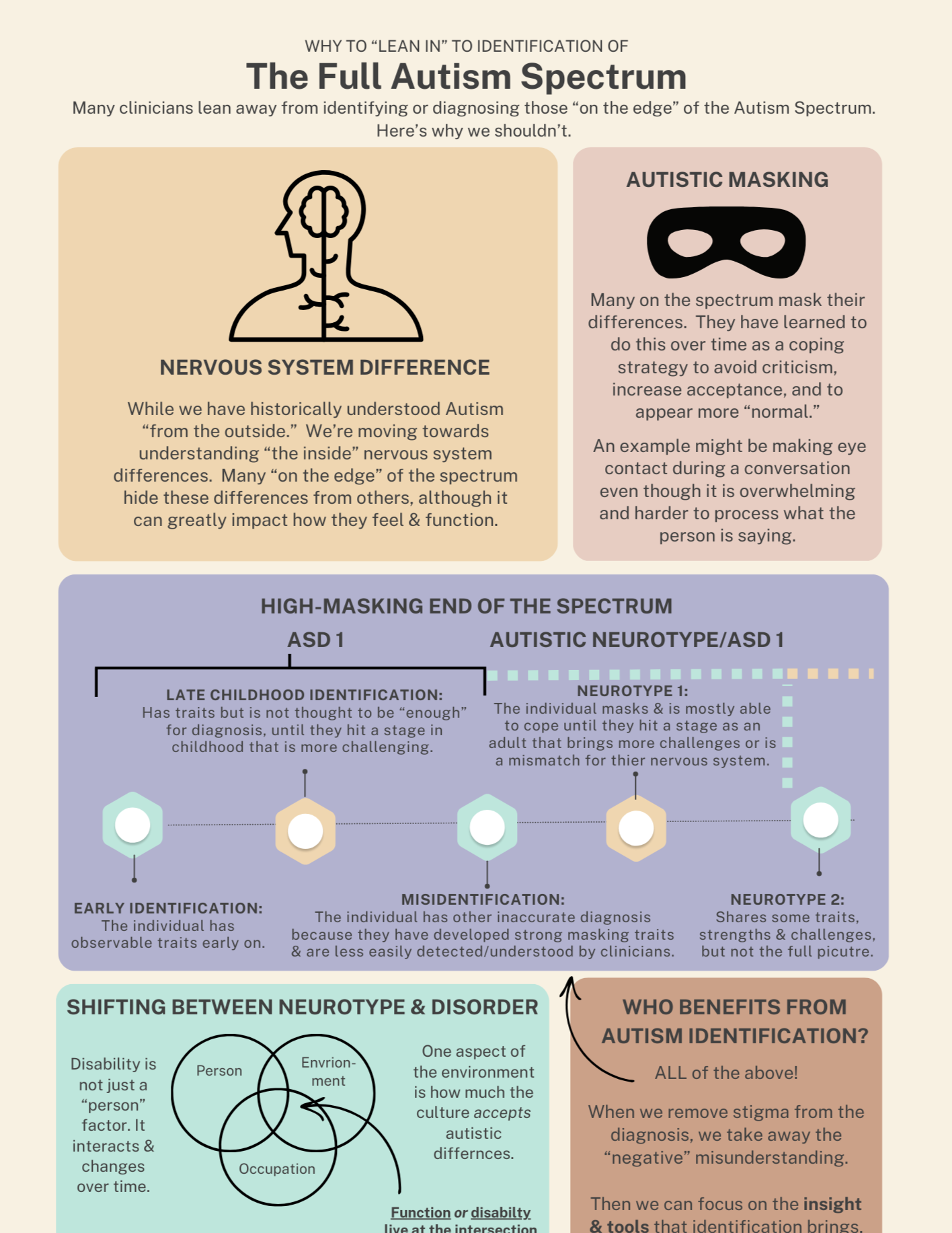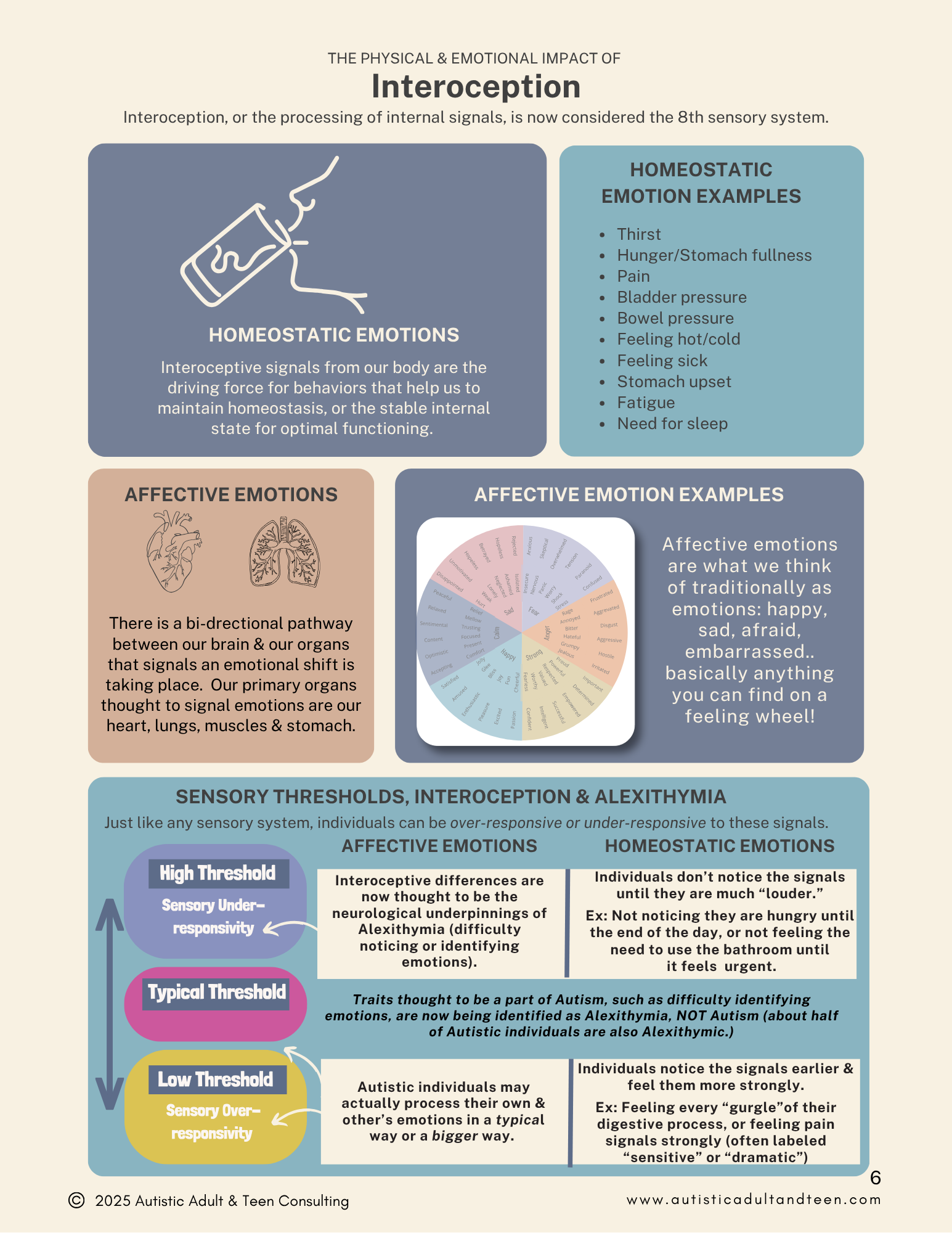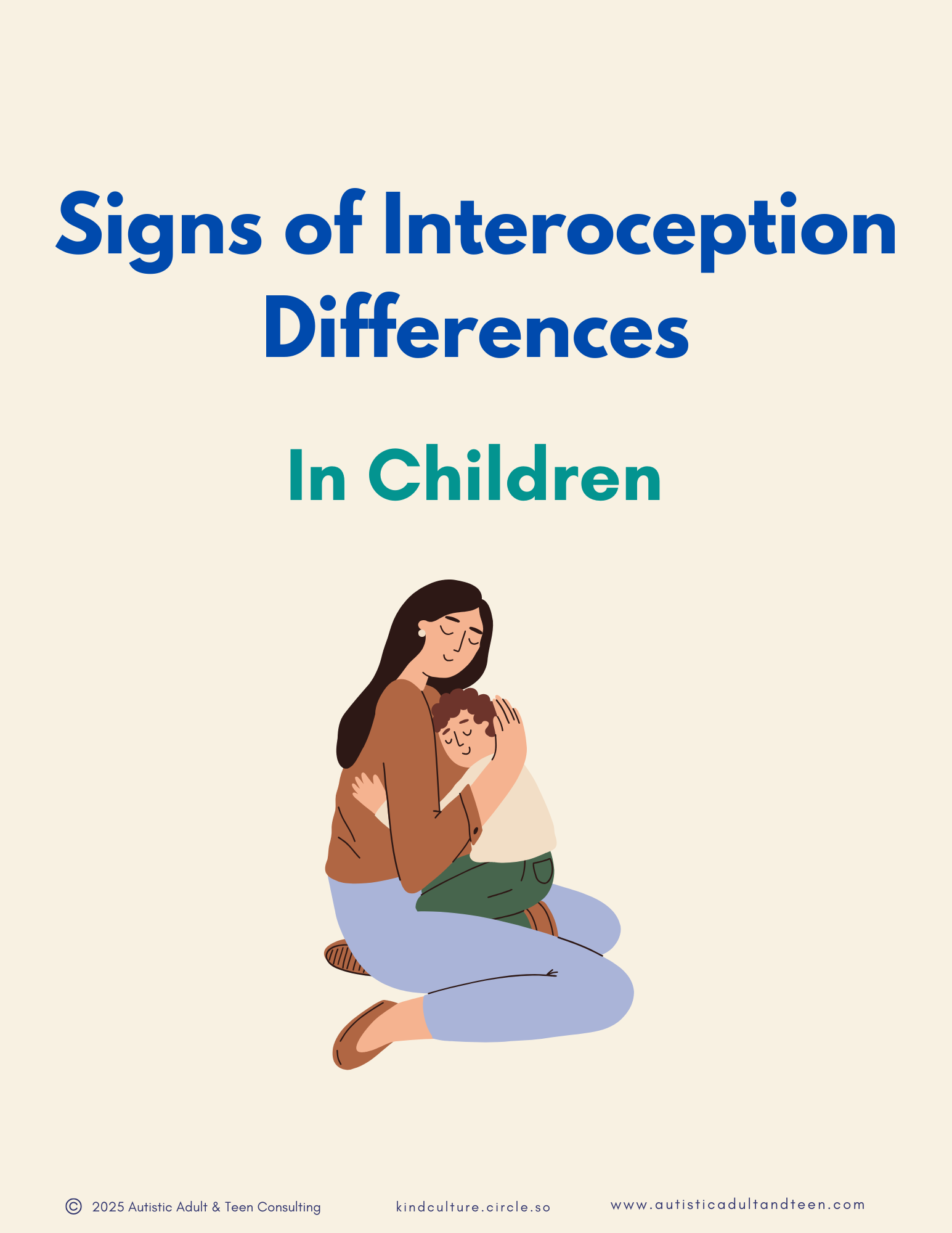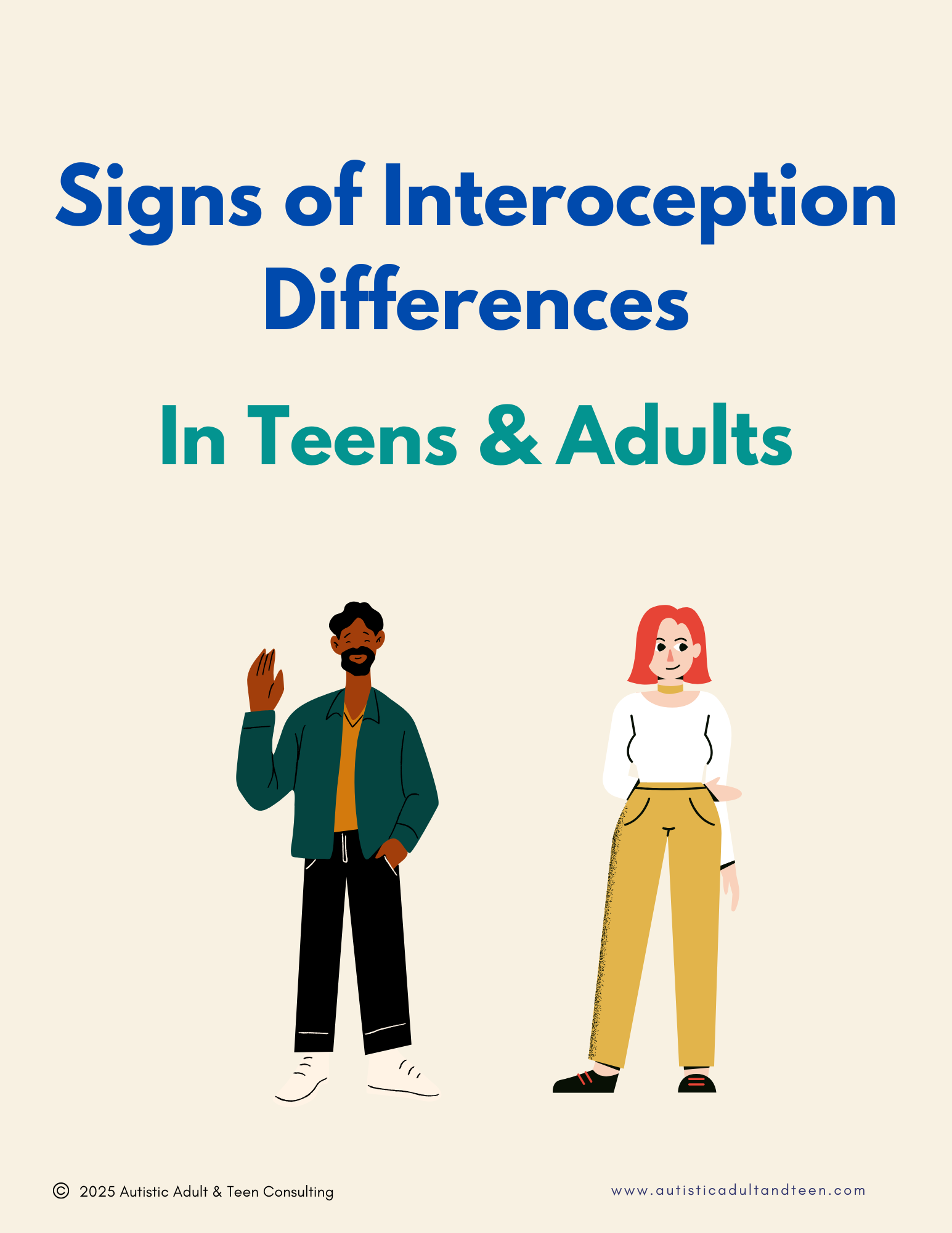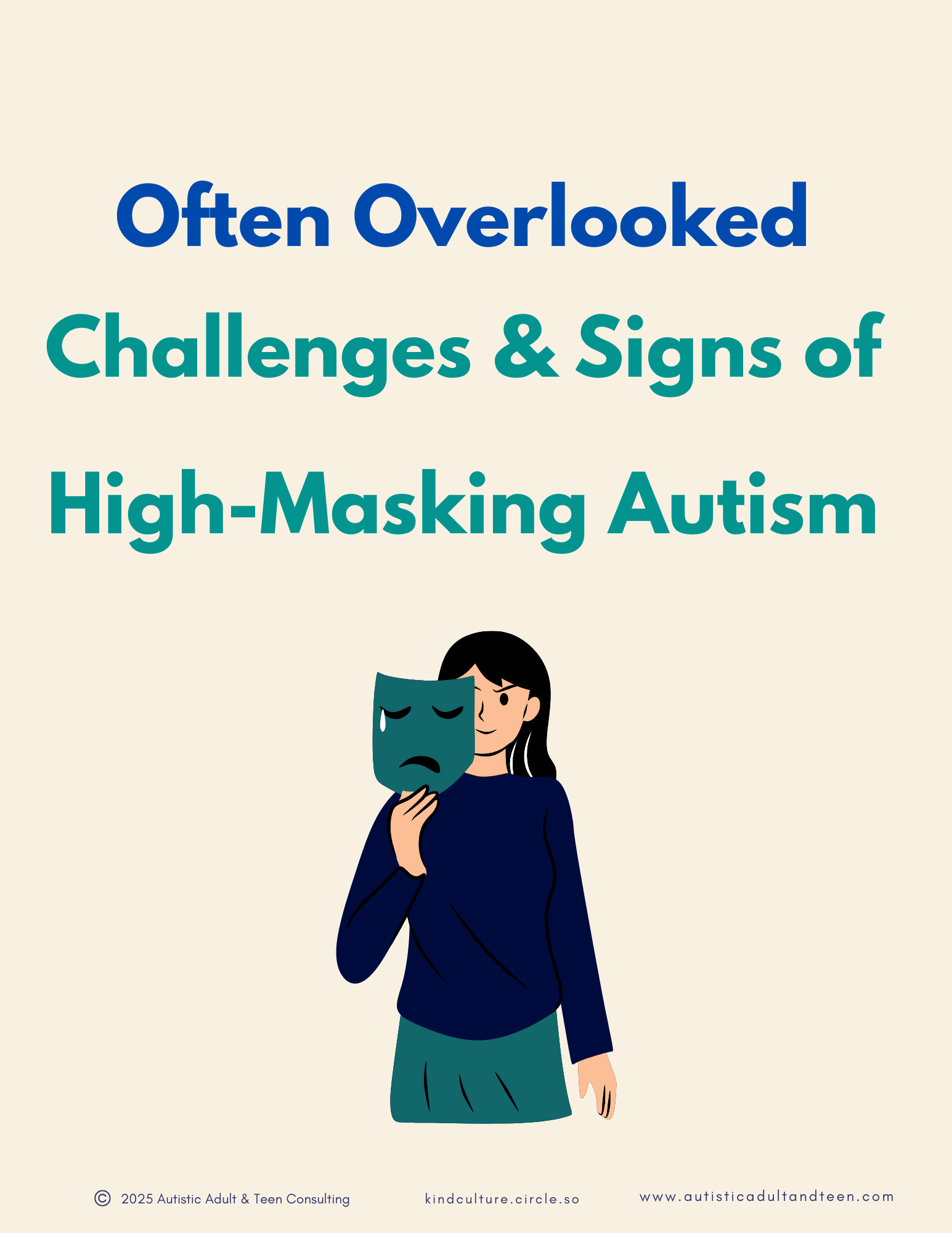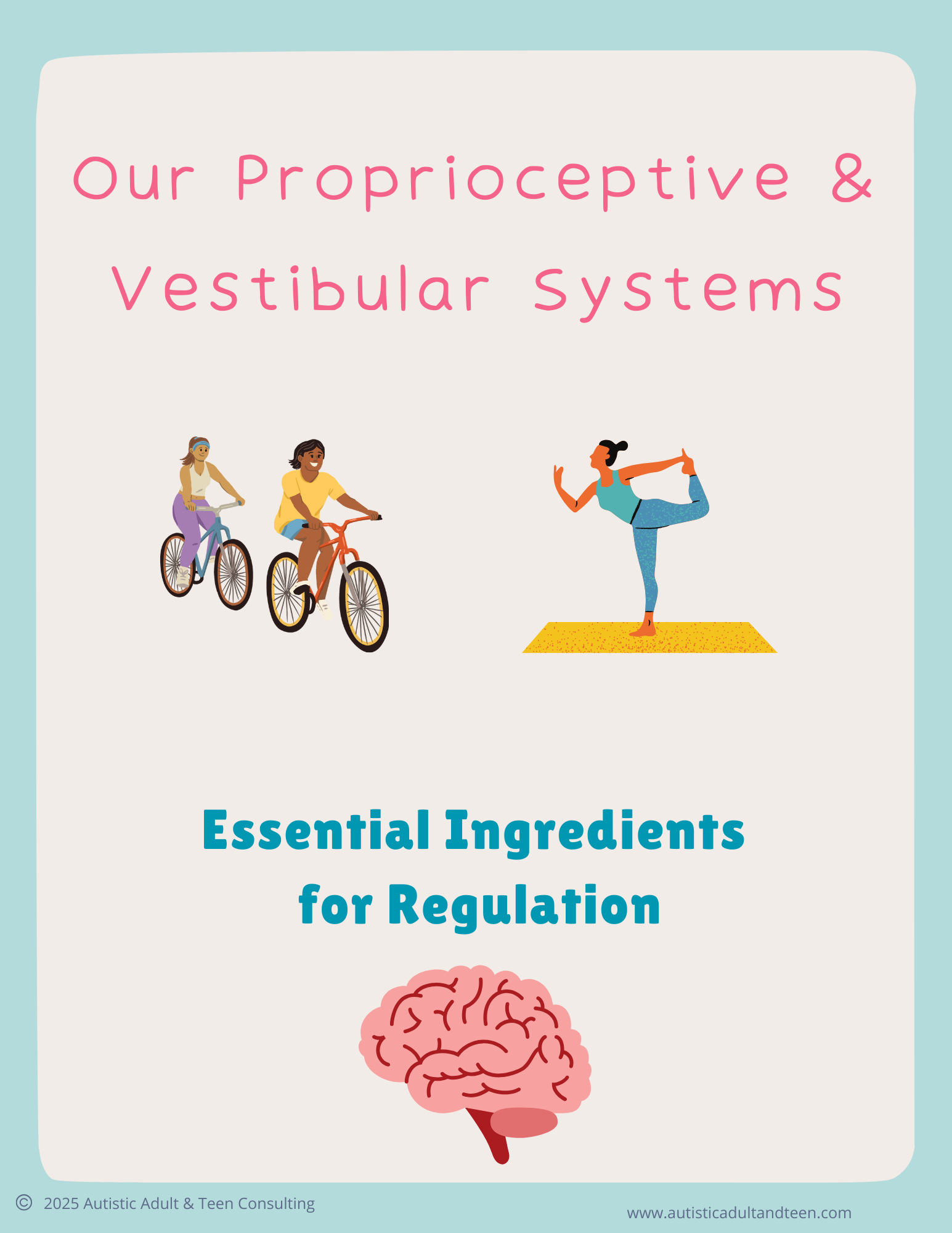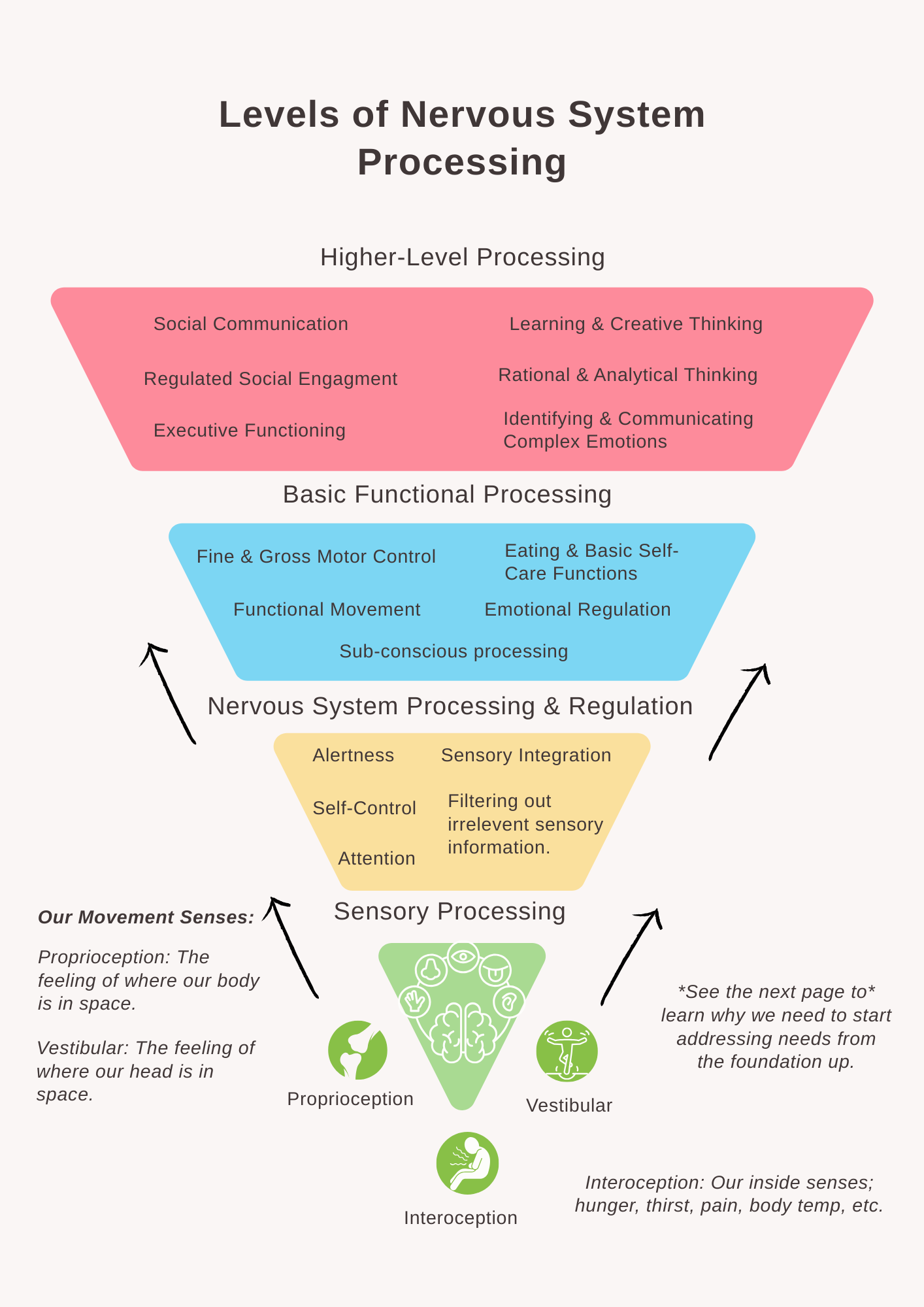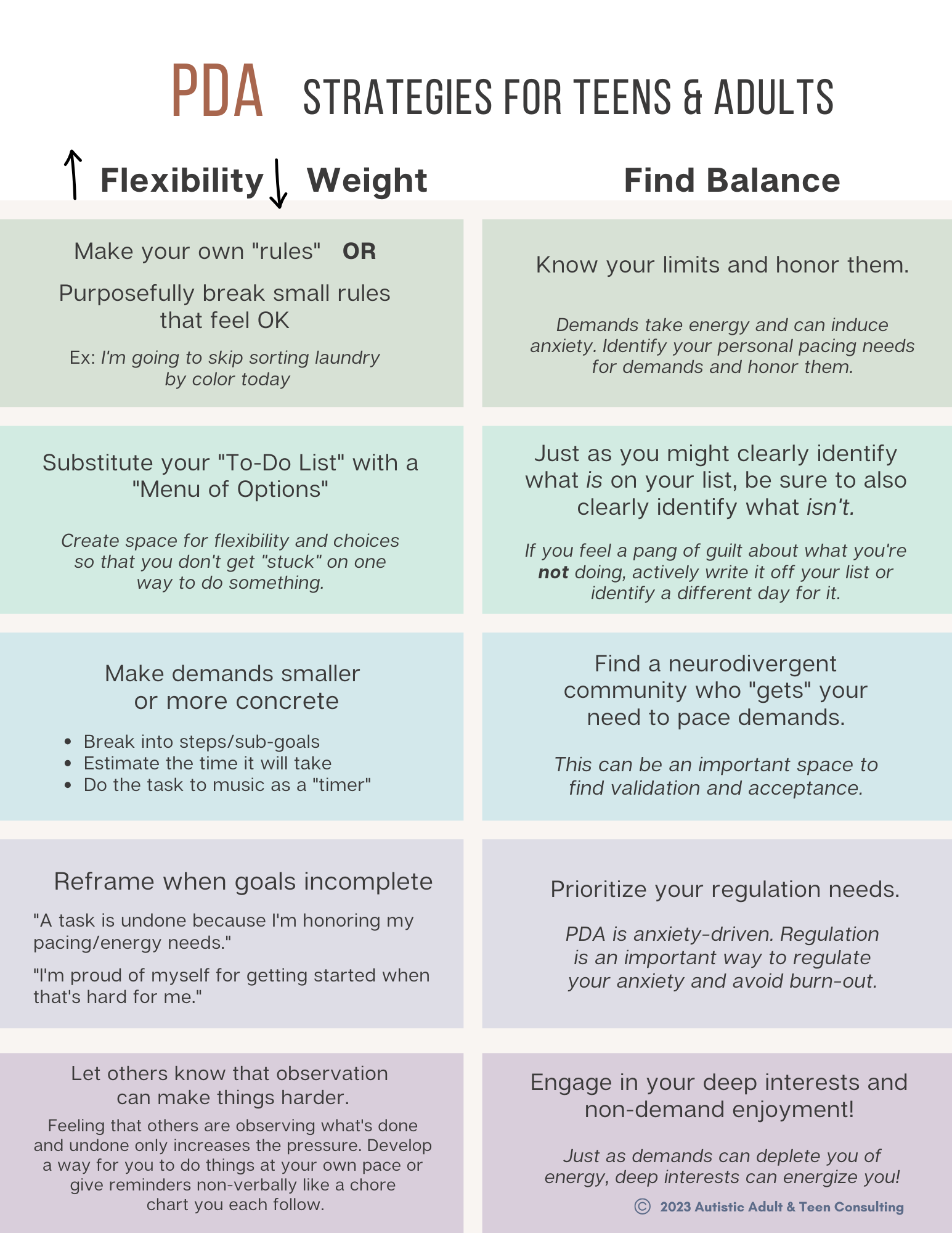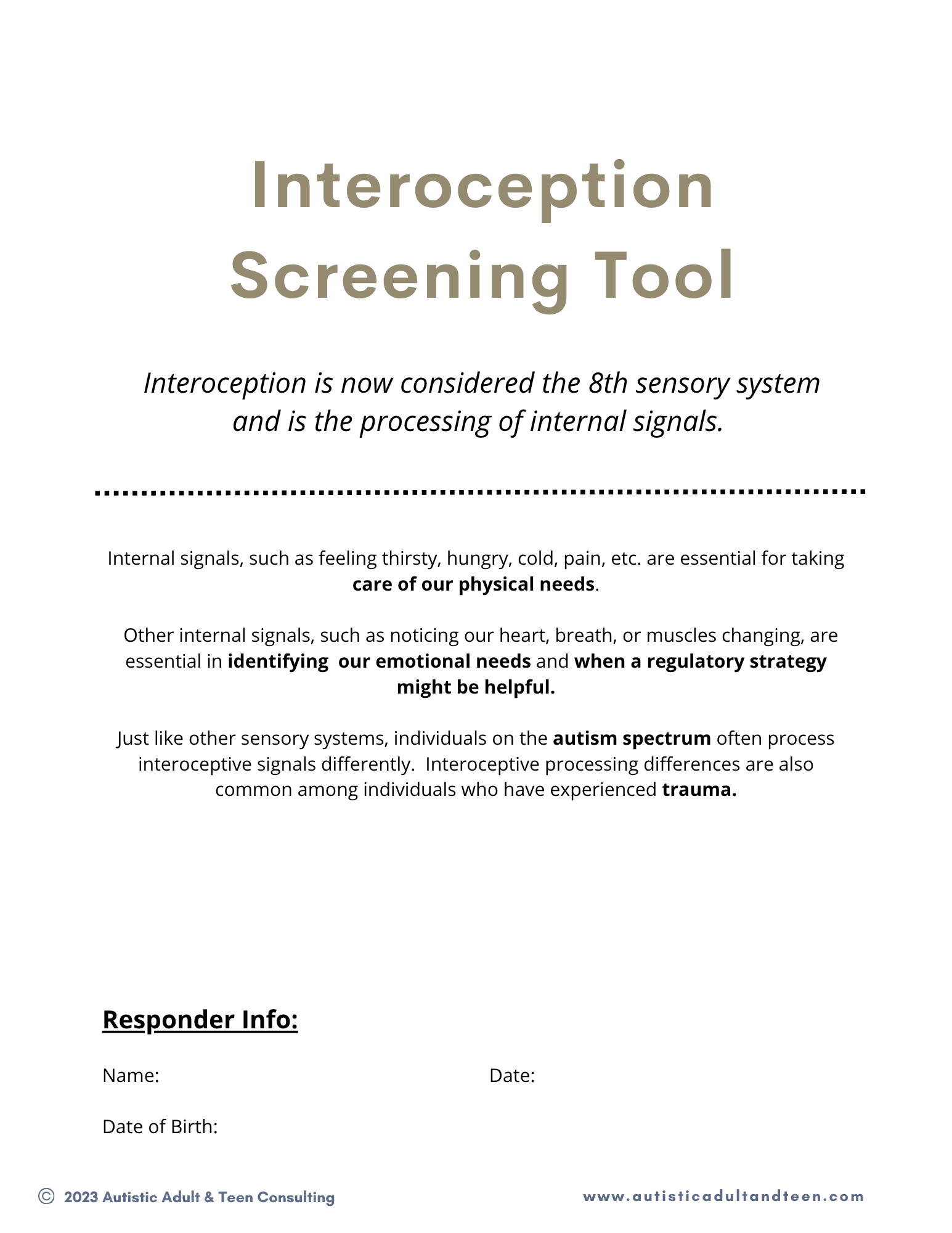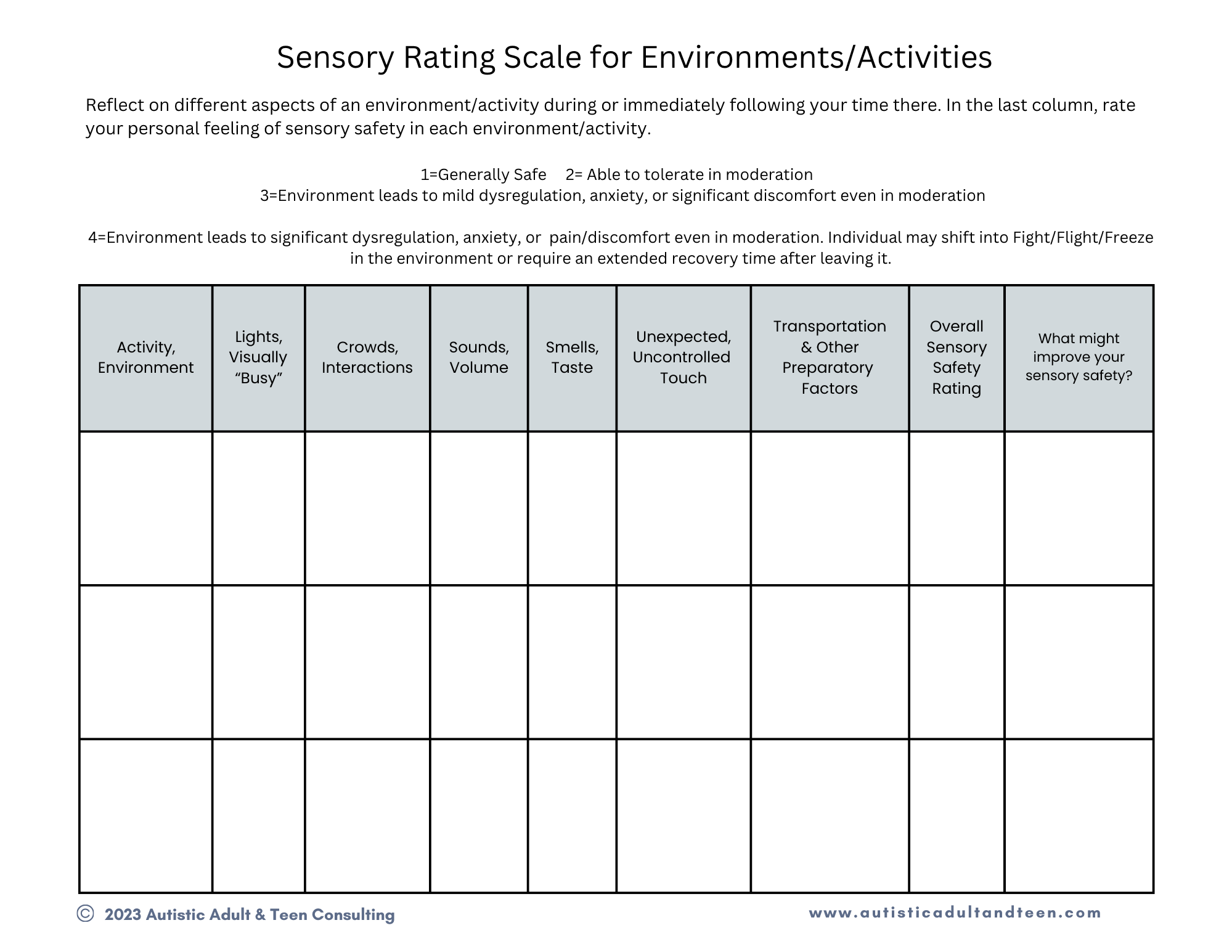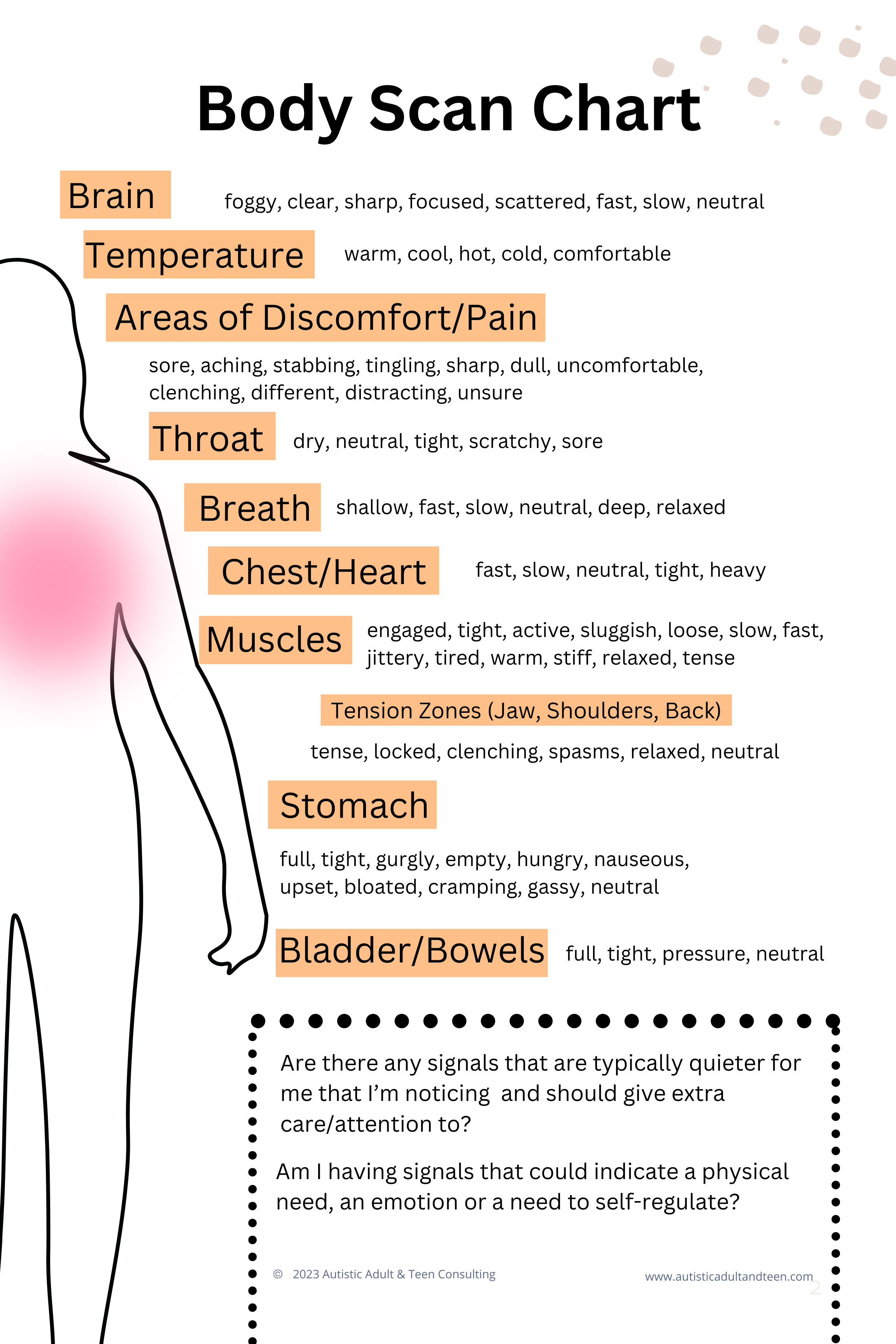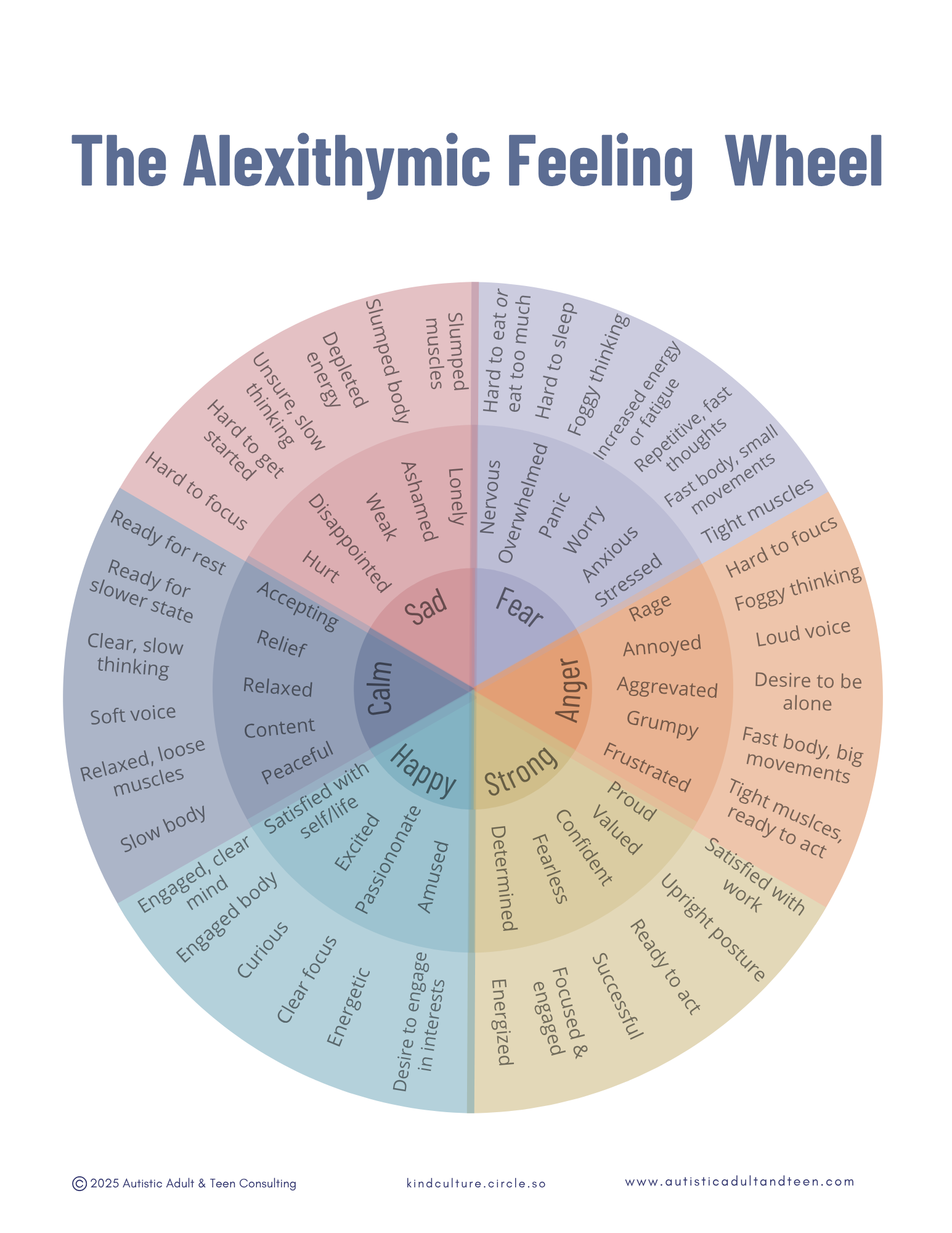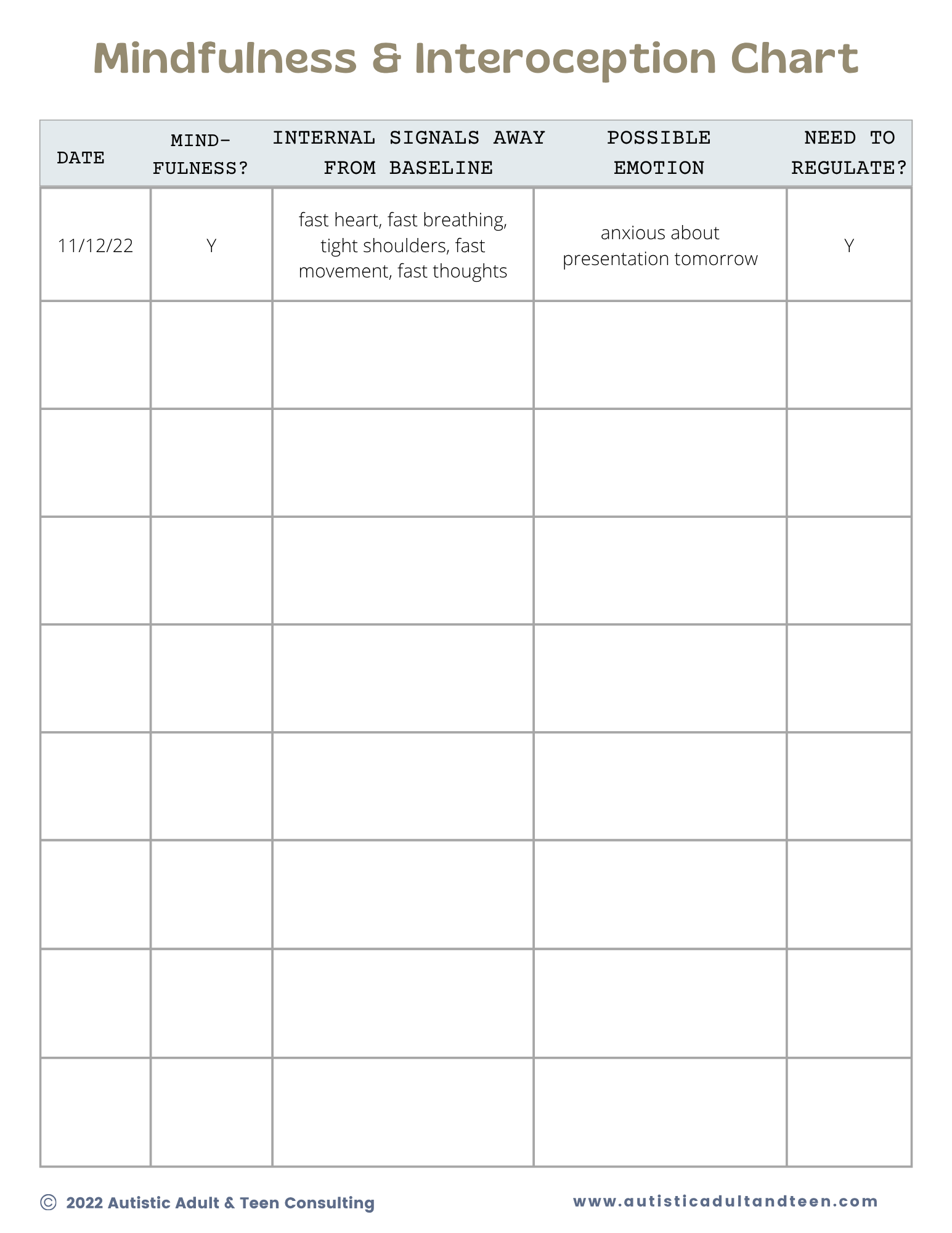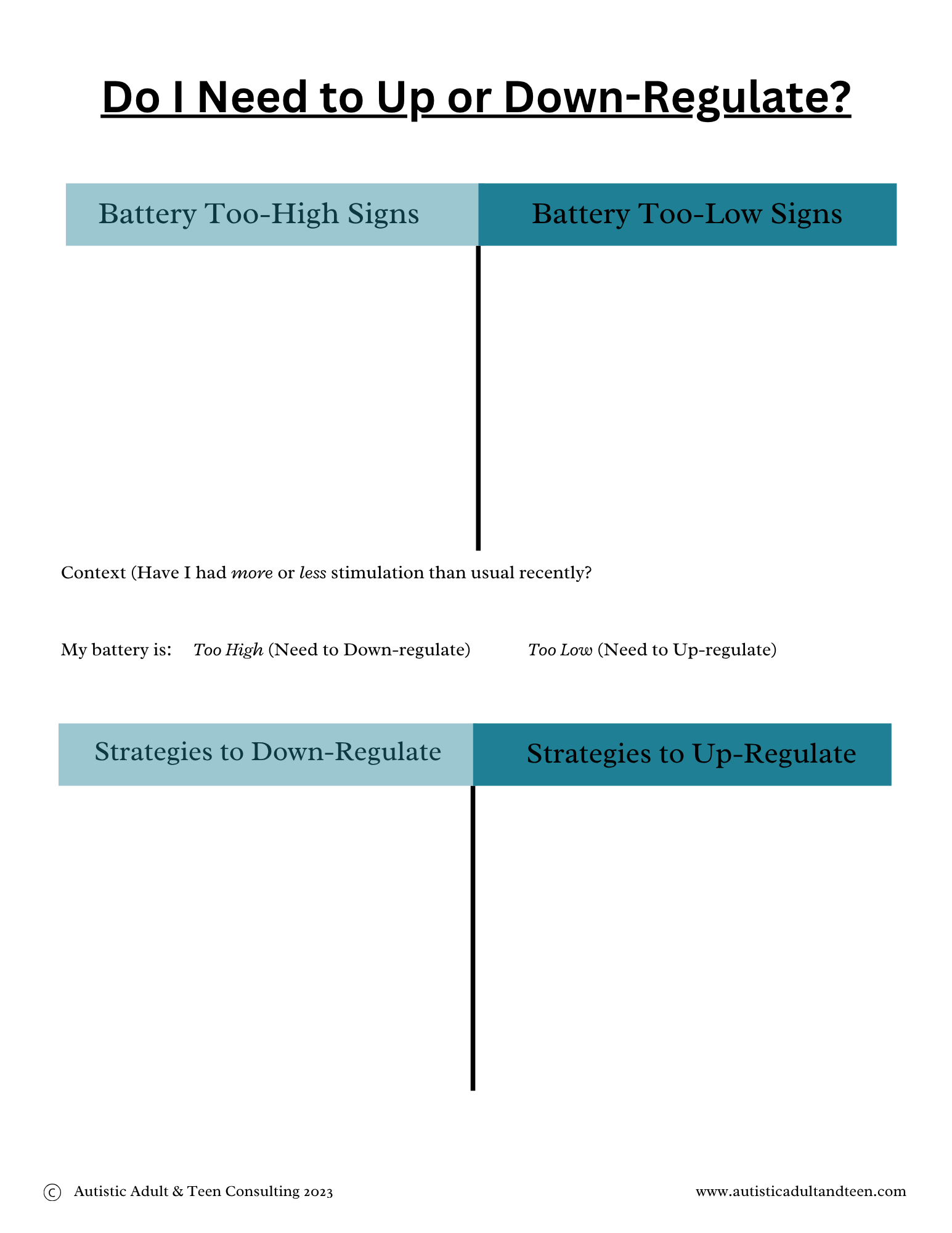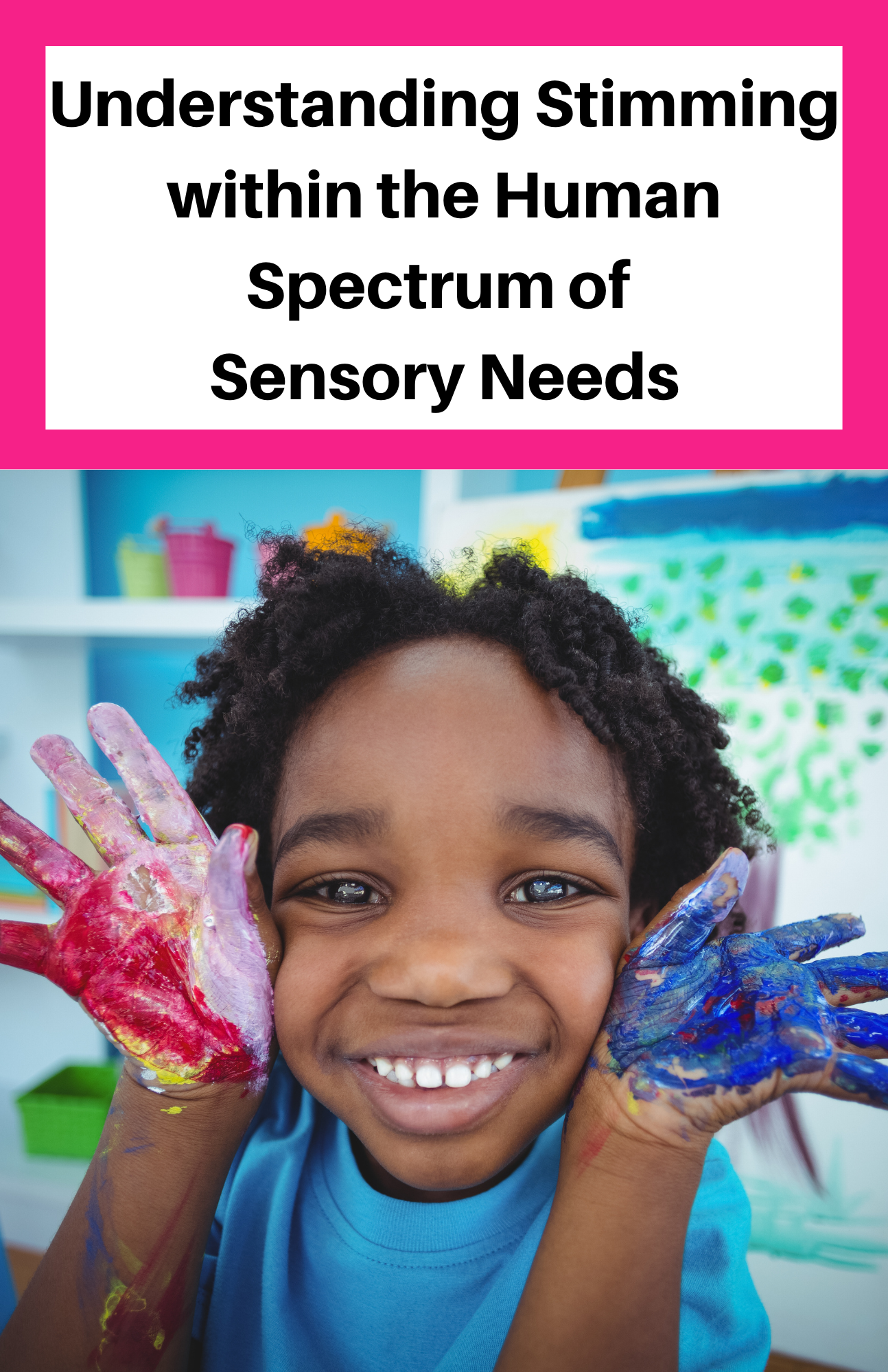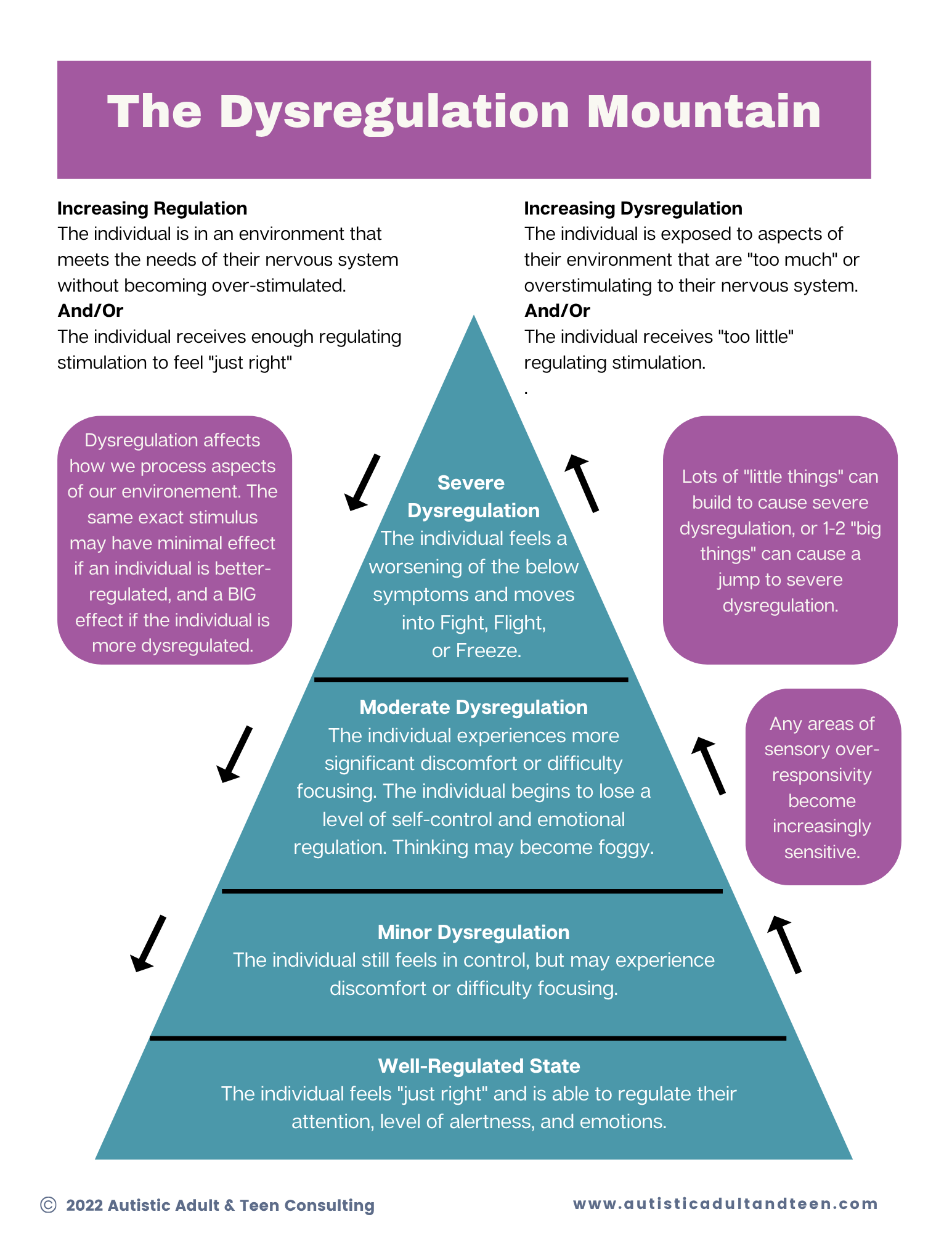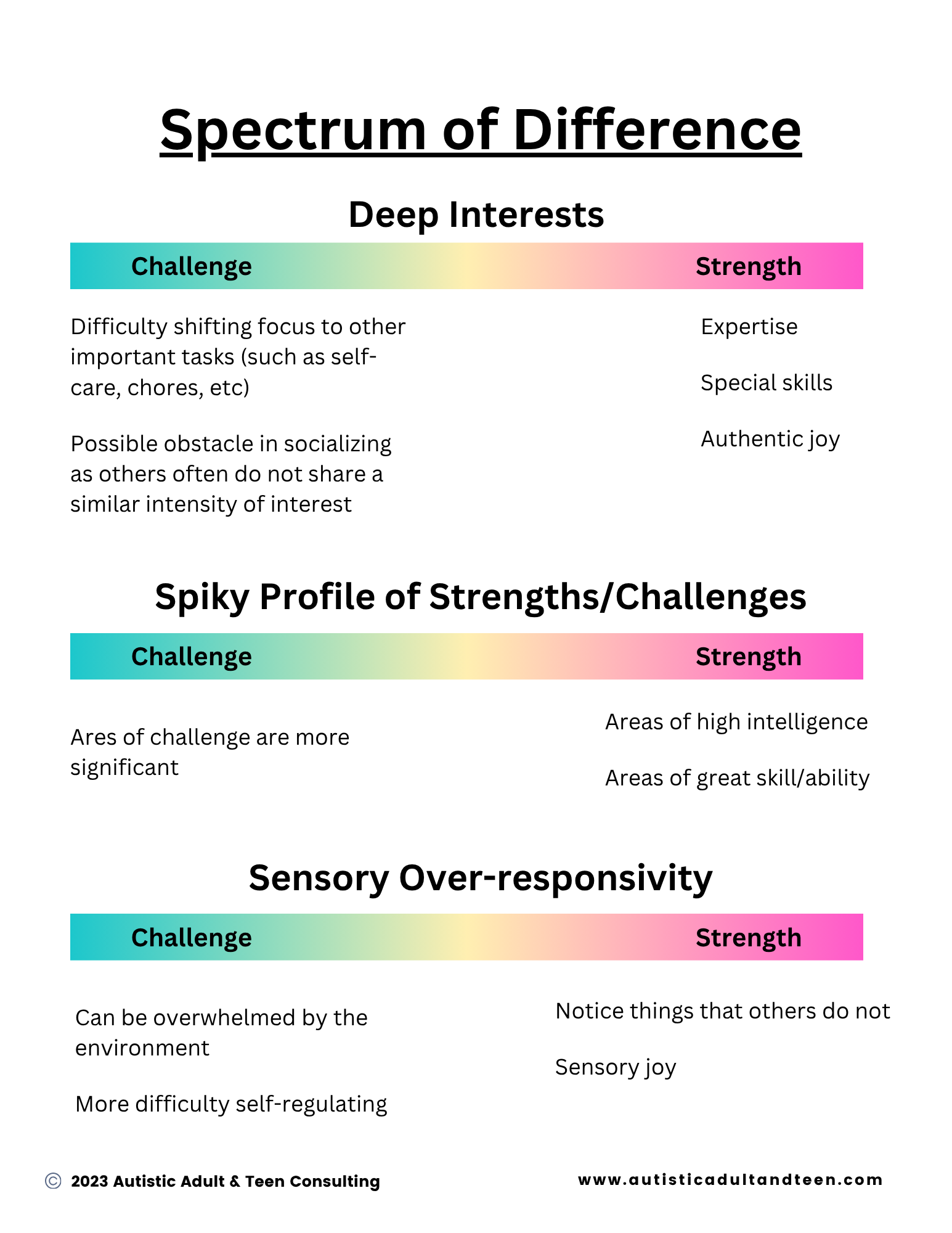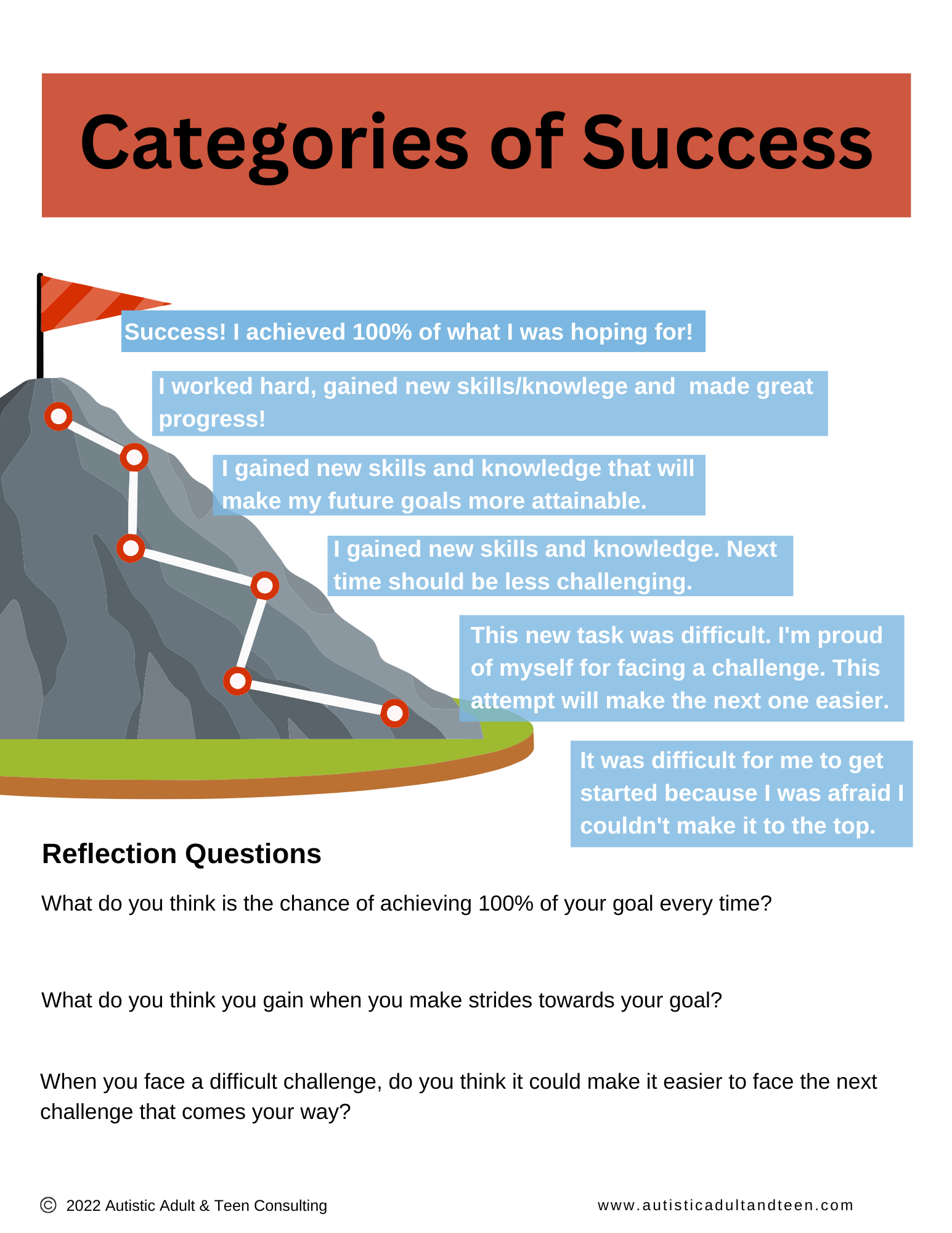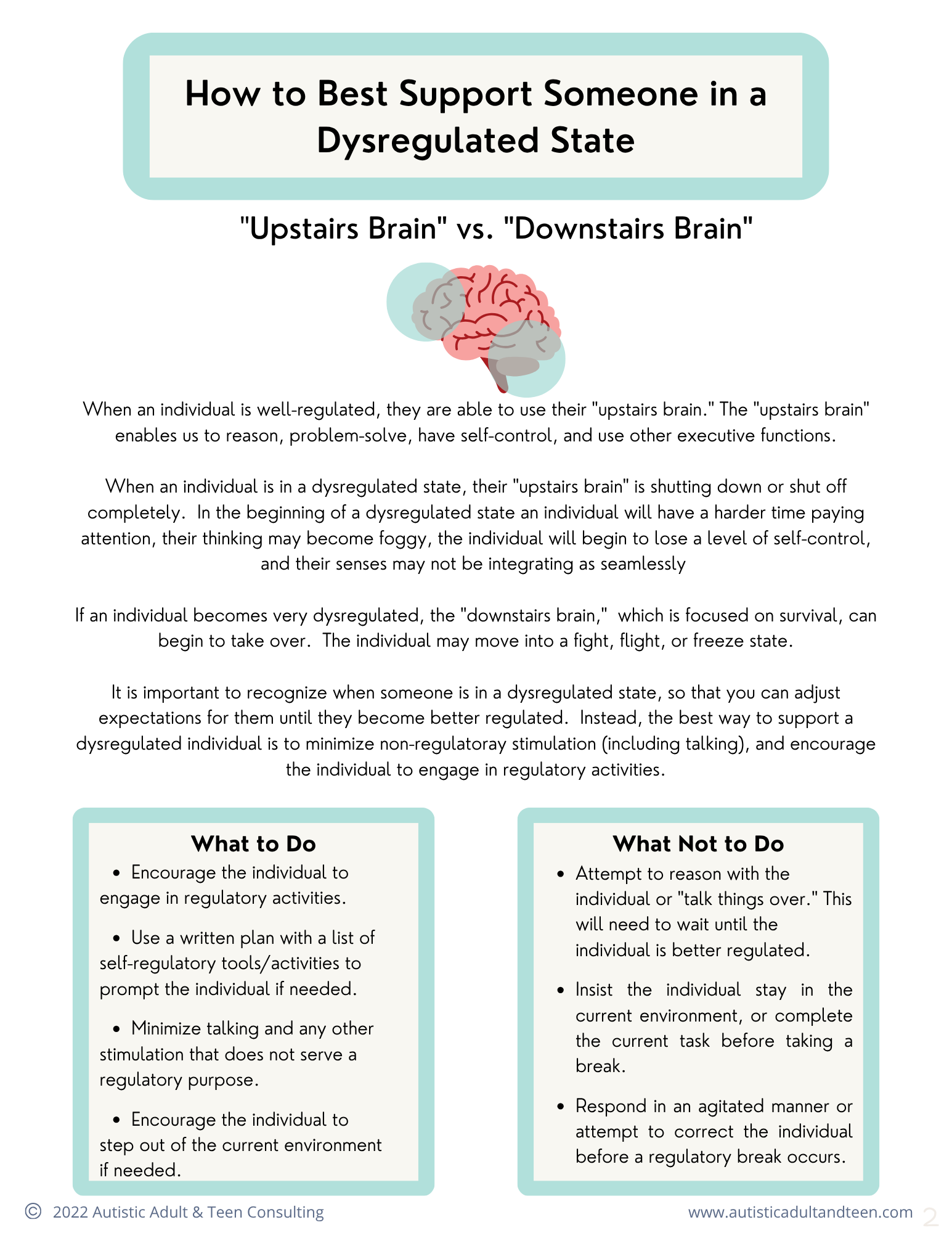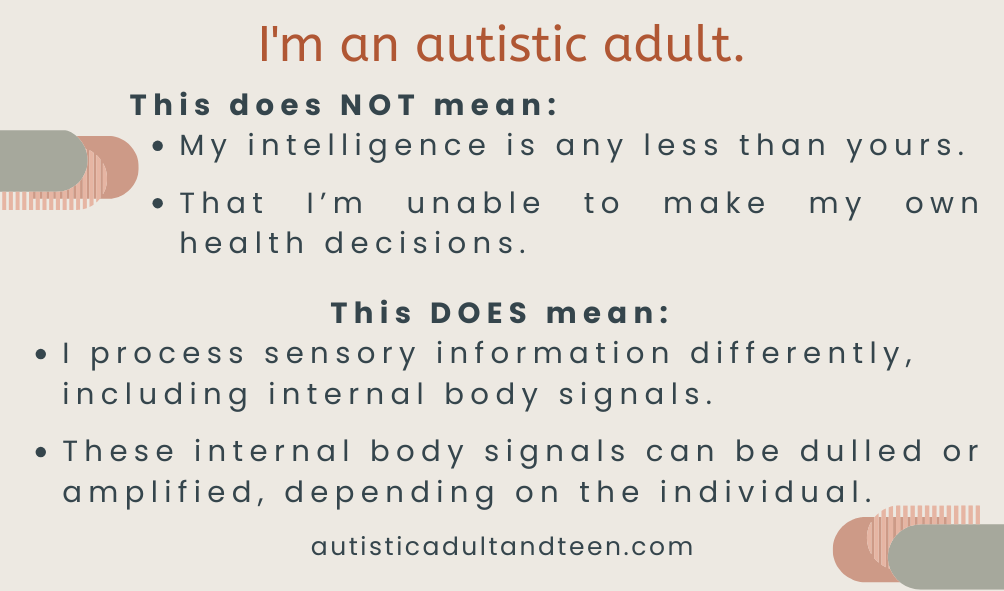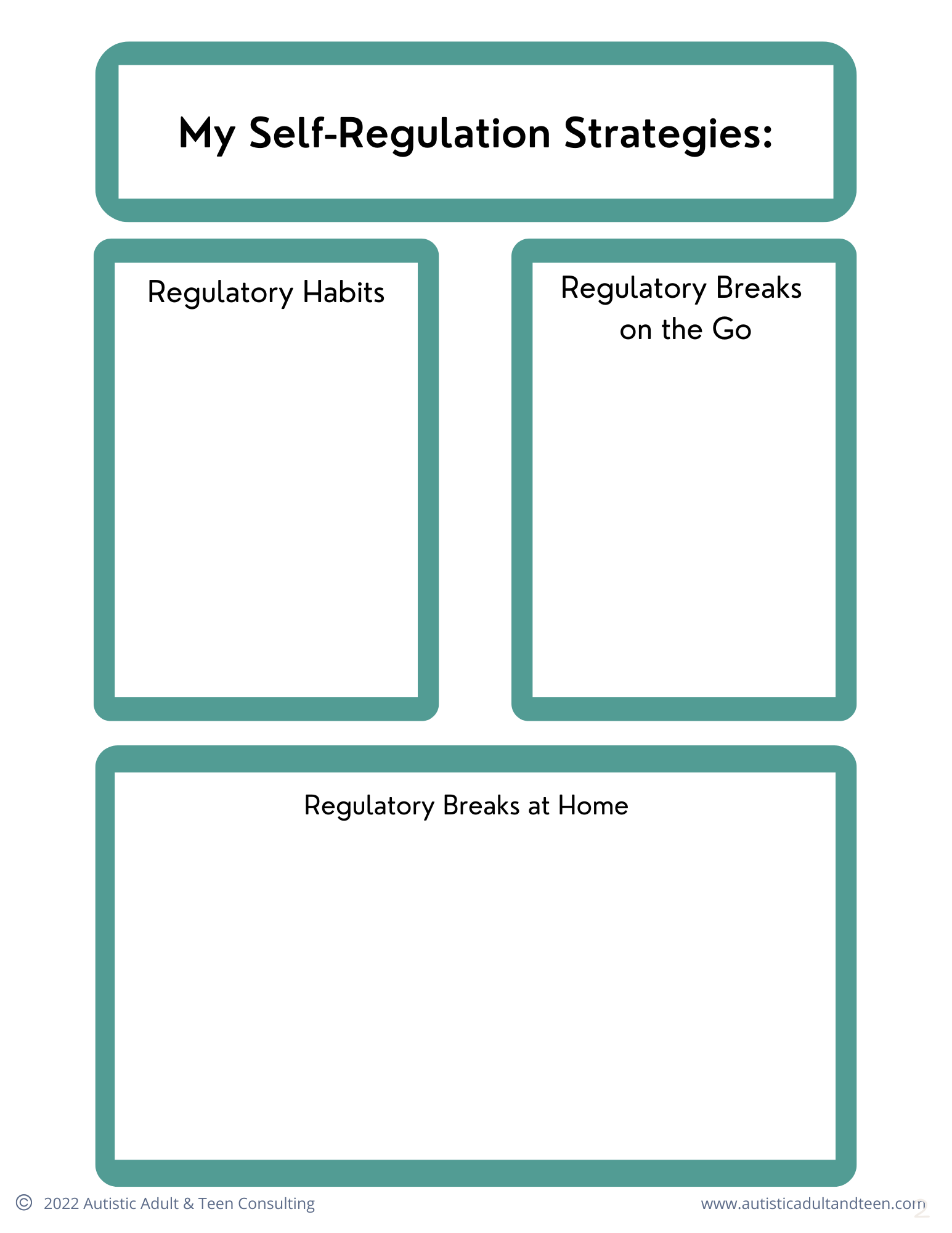A quick look at the benefits of autism diagnosis or identification.
This infographic gives a brief look at the impact of our “inside senses,” including both physical & mental health!
Common signs of Interoception differences in children.
Common Interoception signs in teens and adults.
A quick look at why the observational approach to identifying or understanding an autistic person’s needs falls short
A guide for clinicians striving to shift towards affirming care. Individuals seeking affirming clinicians may also find it helpful to share/discuss with potential providers.
Member Library
A quick look into understanding one of the strongest tools for regulation..our movement senses!
This guide helps to set up a plan to manage or even avoid future meltdowns.
A look into different levels of nervous system processing…and why it’s important to start with the basics…regulation!
A basic overview of approaches to manage PDA-related anxiety for teens & adults.
A quick screening tool to help clinicians flag interoceptive differences in teens & adults.
A rating scale to identify environments & activities that feel safe (and those that do not).
A chart to guide body scans & check-in with how you’re feeling.
This feeling wheel is modified for Alexithymic processors with more focus on the base emotions, and “alternative” emotion indicators.
Mindfulness & Interoceptive signals can feel really abstract, especially when you start trying to tune in. A quick way to track your “inward” moments and make it feel less abstract!
This short E-book examines an emerging understanding of autistic social communication differences..based on sensory processing
Track your signs of a “too high” or “too low” battery & ways to help your nervous system reset.
A short E-book dives into understanding the need for stimming, and why it’s actually not so different.
A look at different levels of dysregulation & the impact it has on us.
A brief look at common areas of autistic differences and the spectrum of challenges-strengths that comes along with that difference.
A handout to expand the all-or-nothing, success-or-failure lens to understand different categories of what success can look like.
A broad look at what to do & what NOT to do when supporting someone who is dysregulated.
A digital advocacy card for autistic adults to use in healthcare settings to advocate for agency & understanding interoceptive processing differences that can drastically affect health management.
A short workbook to identify your personal regulatory strategies.

